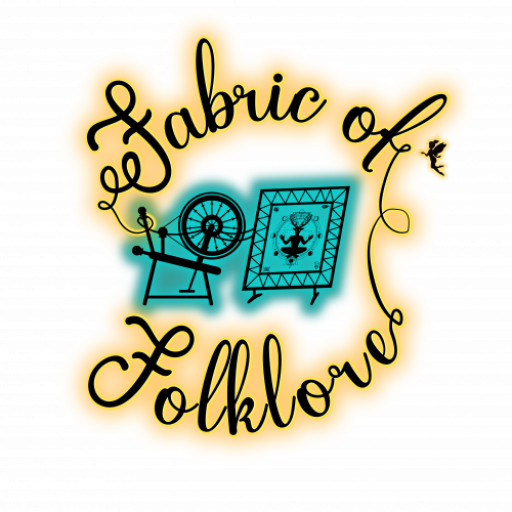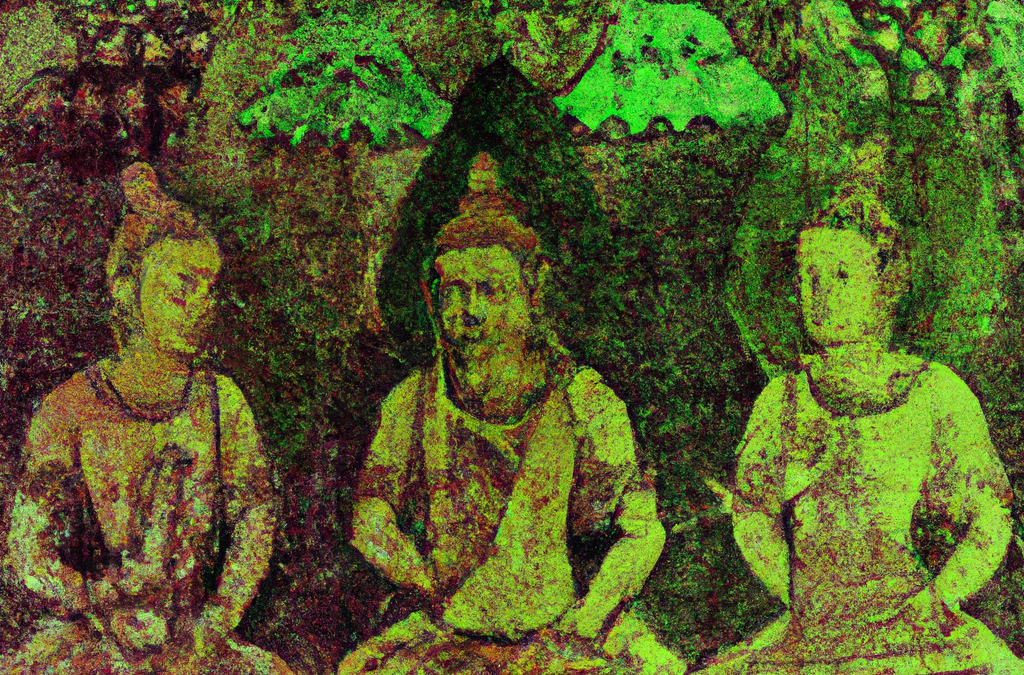Religion vs. Mythology
As a non-folklorist hosting a folklore podcast, there is a lot of terminology that I find myself questioning. As a person with a communication degree, having an accurate working definition of the words I use is important to me. So in this series of posts, I am defining the words we regularly use on the show regularly so we all understand what is meant when we say them.
Today we’re exploring mythology and religion, where they intersect, and how they differ. I particularly was interested in examining these two terms more closely because I knew there was a relationship, but I couldn’t get my head around what that intersection looked like, but as you will see in the exploration below, there is a reason the word myth causes issues. English speakers hold multiple and contradictory definitions in our head at the same time.
Religion and mythology have overlapping elements. They both attempt to explain the world and happenings within it but differ in their expanse. Mythology are stories of a divine nature, and are almost always associated with a religion.
“My favorite definition of mythology: other people’s religion. My favorite definition of religion: misunderstanding of mythology.” Joseph Campbell
Religion
Religion is a system of beliefs and practices around supernatural, sacred, or divine entities. Religions often include ritual, morality, theology, and mystical experience as well as mythology. Some of the more prominent world religions are Christianity, Islam, Judaism, Hinduism, and Buddhism. But there are over 4,000 religions practiced around the world. Each of these religions have their own set of stories that help to make sense of the world in which we live.
Mythology
Mythology is harder to pin down because there are two pervasive, yet contradictory definitions being used simultaneously in our language of the word myth. The Oxford English Dictionary’s two distinct definitions:
1. A traditional story, typically involving supernatural beings or forces, which embodies and provides an explanation, etiology, or justification for something such as the early history of a society, a religious belief or ritual, or a natural phenomenon.
2. A widespread but untrue or erroneous story or belief; a widely held misconception; a misrepresentation of the truth. Also: something existing only in myth; a fictitious or imaginary person or thing.
Mythology, for folkloric purposes, is a collection of stories, also called myths, belonging to a religious tradition but can also be part of a cultural group as well. These sacred narratives attempt to explain the universe including how the world came to be.
But as we saw from the second definition, there is also an association with myths as inherently fictional. That myths are unverifiable, and their main characters are figments of a fictional tale.
Participants of religious groups, therefore, object to having their sacred stories called myths, and do not describe them as such. (They may instead refer to them as holy scripture, sacred text or theology) And this is impart because the word myth also is associated with “untrue.” And this is where religion and myth is blurry. Because just because something is a myth, part of a religious or cultural mythology, does not mean that it isn’t accurate, or doesn’t have historical veracity. But the word myth can feel negative when in reference to something you hold as true for yourself.
Myths are therefore a word most often used by outsiders looking in. A practitioner of Buddhism speaking of Islamic stories, might refer to them as Islamic mythology, while the Buddhist would not likely call her own religious narratives myths.
Mythology and Religion
When looking at the relationship between religion and mythology, it is easiest to think of mythology as an element of religion. It is the collection of stories that hold significance and give guidance as to how to live a moral and spiritual life. It is also primarily used by those looking at religions and cultures of others, not their own, because we also hold the idea that myths are untrue.
Do you think of your religious texts as mythology? What is your favorite mythological story? What are your thoughts? Let us know! We love hearing from you!

